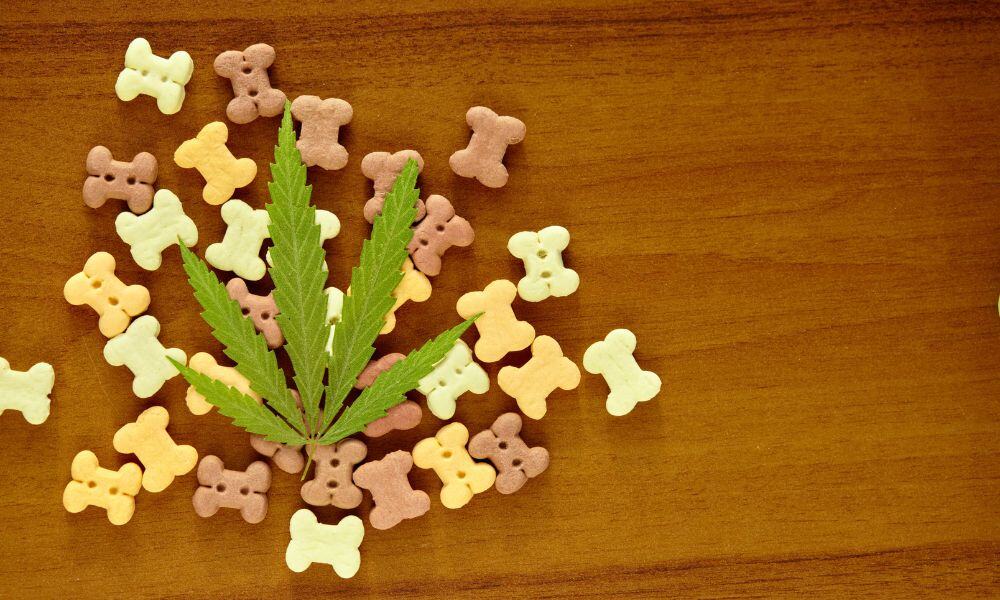CBD dog treats offer a convenient delivery method that many pet owners find easier to administer than tinctures or capsules, especially for dogs who refuse liquid medications or become stressed during direct dosing procedures. The treat format also allows for more precise dosing control since each treat contains predetermined CBD amounts, reducing the guesswork in measuring liquid doses for anxious pets.
Anxiety-reducing treatments
- Treat-based CBD delivery creates sustained release as the product moves through dogs’ digestive systems, potentially providing 4-6 hours of anxiety-reducing effects compared to 2-3 hours from sublingual oils. This extended duration is particularly beneficial for separation anxiety cases where dogs need calming support throughout work days or extended absences.
- The chewing and consumption process may provide additional calming benefits beyond CBD. Many anxious dogs find repetitive chewing motions naturally soothing, making the act of eating CBD treats a behavioural intervention that complements the chemical anxiety reduction. This dual-action approach addresses both the physical symptoms of anxiety and the need for comforting activities.
- CBD treats often contain additional calming ingredients like chamomile, valerian root, or L-theanine that work synergistically with cannabidiol to enhance anxiety reduction. These combination formulas target multiple neurotransmitter pathways simultaneously, potentially providing more comprehensive anxiety relief than single-ingredient products.
Clinical evidence for treatment effectiveness
The research specifically measured stress indicators like cortisol levels, heart rate variability, and observable anxiety behaviors, with treated dogs showing improvements across all measured parameters. Veterinary behaviourists report that CBD treats demonstrate particular effectiveness for:
- Storm and firework phobias – Reducing trembling and hiding behaviors
- Car travel anxiety – Decreasing drooling and restlessness during rides
- Veterinary visit stress – Improving cooperation during examinations
- Social anxiety with new people or pets – Reducing aggressive or fearful responses
- Routine disruption anxiety – Helping dogs adapt to schedule changes
Research specifically comparing CBD treats to other anxiety treatments remains limited. Most studies examine CBD’s general anxiolytic properties rather than evaluating different delivery methods or comparing treatment effectiveness to pharmaceutical alternatives.
Dosing accuracy with treat formats
Pre-measured CBD treats eliminate dosing errors that commonly occur with liquid products, where pet owners may accidentally underdose or overdose on their anxious dogs. Consistent dosing proves crucial for anxiety management since inadequate amounts provide no benefit, while excessive doses may cause unwanted sedation. Treat manufacturers typically offer multiple potency options ranging from 2.5mg to 25mg CBD per treat, allowing pet owners to select appropriate strengths based on their dogs’ weight and anxiety severity. This variety enables precise dose titration without requiring treat-cutting or complex calculations that liquid products demand. The delayed onset of treatment-based CBD, typically 30-90 minutes, requires strategic timing for maximum anxiety prevention. Pet owners must anticipate anxiety triggers and administer treats before stressful events rather than waiting until anxiety symptoms appear.
Realistic expectations
CBD treats work best for mild to moderate anxiety rather than severe panic disorders that may require pharmaceutical intervention. Dogs with extreme separation anxiety, aggressive responses to triggers, or self-destructive behaviors typically need comprehensive behavioral modification programs alongside any supplementation. Quality inconsistencies among CBD treat manufacturers create unpredictable results, with some products containing significantly less CBD than the labelled amounts. Third-party tested treats from reputable companies provide more reliable anxiety reduction compared to unverified products that may contain inadequate active ingredients.





